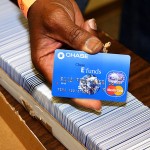Debit cards a hit in debt-riddled America
Debit cards are becoming the plastic currency of choice for millions of Americans bogged down by massive debt during the recession.
American Express unveiled its own prepaid debit cards this week, becoming the first mainstream financial firm to offer this kind of payment method originally being pushed for by smaller players in the industry.
Prepaid debit cards offer some unique strengths amid this tough financial environment. But they indeed have some drawbacks of their own. For instance, they don't offer the same degree of protection provided by credit cards and banks.
Due to their rising use among Americans, debit cards are drawing the scrutiny of consumer groups who have called for more oversight of issuers.
The new Consumer Financial Protection Bureau is planned to step up to that role when it opens in July.
"People are using prepaid cards as checking accounts and the government ought to regulate it similarly," says Suzanne Martindale, who is a lawyer for Consumers Union.
The Federal Reserve estimates that as much as $140 billion was spent in prepaid debit cards in 2009, a 21.5 percent hike every year during a four-year span. Research firm Mercator Advisory Group projects the amount of money put into debit cards to reach $552 billion by next year.
Prepaid debit cards have become the fastest-growing payment method for Americans with no bank accounts. These cards offer both accessibility and convenience and can be used to buy items and pay bills.
But consumers have to contend with complex fee structures and can't use prepaid debit cards to build their credit score needed to secure loans.
